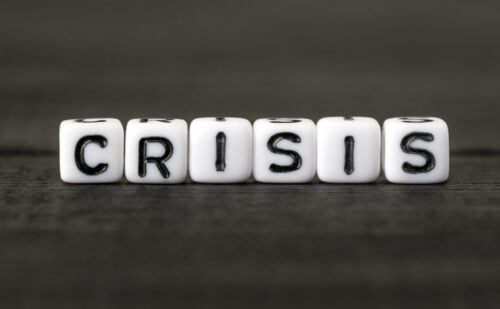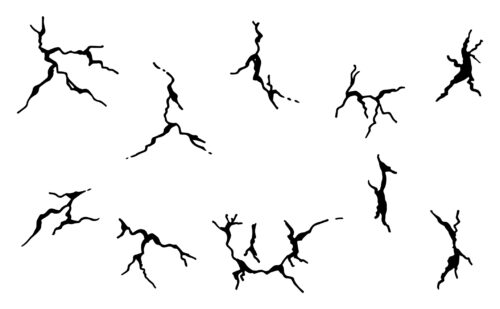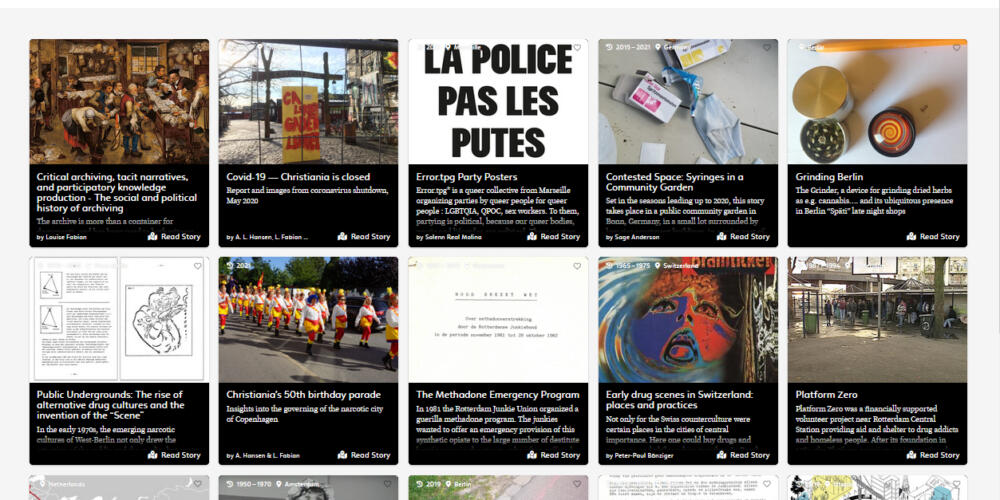
Project of the Month – GONACI
By Rosemary Sweeney
Posted: 19 July, 2022
HERA is pleased to present the next Project of the Month: GONACI
Project Name
Governing the Narcotic City: Imaginaries, Practices and Discourses of Public Drug Cultures in European Cities from 1970 until Today [GONACI]
Project Team
Prof. Dr. Gemma Blok, Open University of the Netherlands, Heerlen
Prof. Dr. Thomas Bürk, IB Hochschule Berlin, Germany
Prof. Dr. Louise Fabian, University of Aarhus, Denmark
Dr. Mélina Germes, CNRS PASSAGES, Bordeaux, France
Prof. Dr. Anders Lund Hansen, University of Aarhus, Denmark
Dr. Stefan Höhne, Kulturwissenschaftliches Institut Essen (KWI) Institute for Advanced Study in the Humanities, Essen, Germany
Prof. Dr. Boris Michel, Martin‐Luther‐Universität Halle‐Wittenberg, Germany
Frederieke Westerheide, Martin‐Luther‐Universität Halle‐Wittenberg, Germany
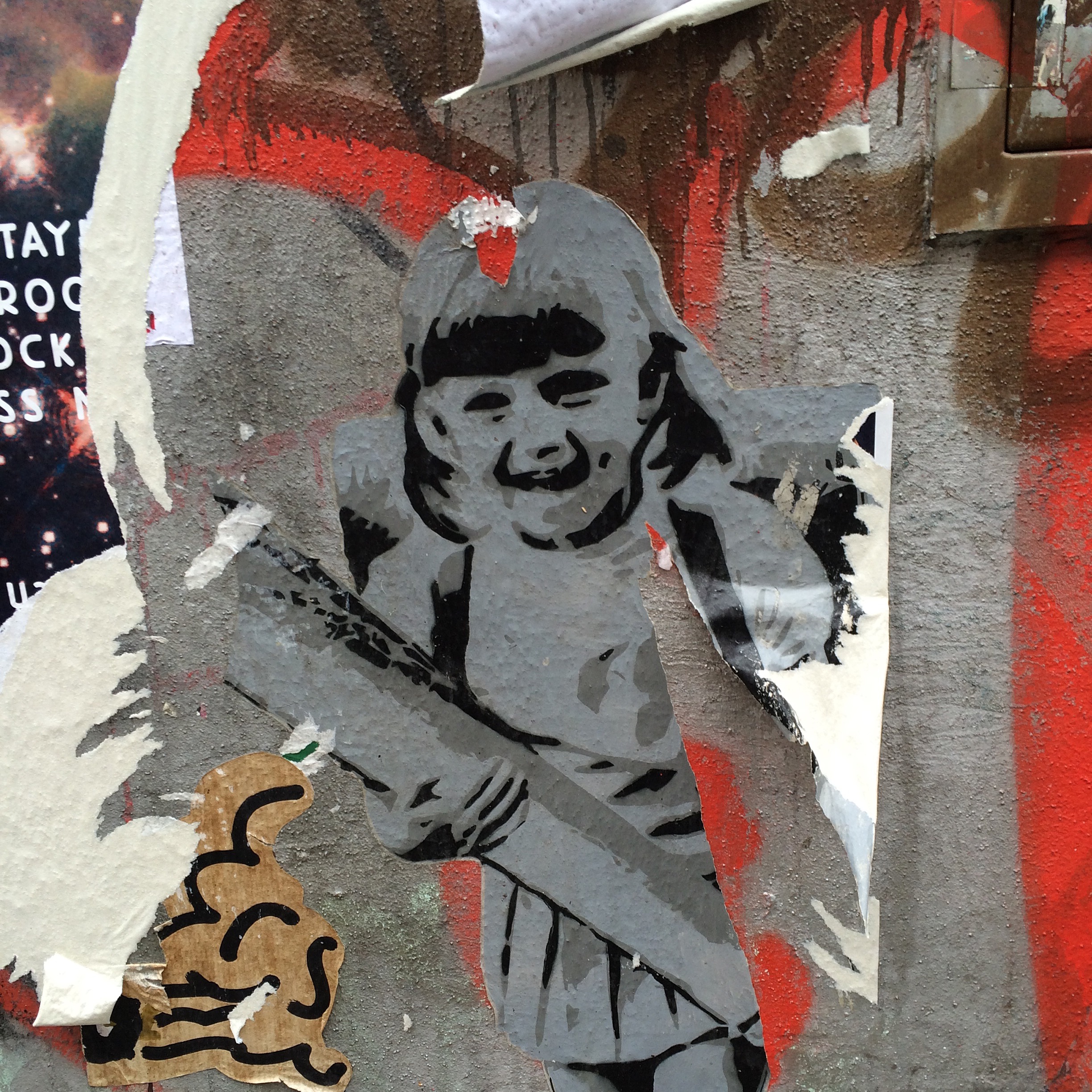
• Describe your project in 1-2 sentences
The Narcotic City project explores how images, ideas, and practices related to the consumption of psychoactive substances produce particular types of urban spaces – and how governments and authorities respond to and regulate use.
Describe your project development to date
Since the project started in May 2019, project members have conducted fieldwork in various European cities, including archival research, situational mappings, interviews, and ethnographic observation (as possible during the pandemic). Furthermore, we fostered close cooperation with partners and disseminated findings through publications, newsletters, conferences, and public events.
In late 2021, we launched the Narcotic City Archive, the first open-access database preserving the heritage of narcotic cultures in post-war European cities. In the two years prior, we developed a prototype and conducted internal tests, finalized programming and design, generated methodological and contribution guidelines, and began producing archive materials.
After very successful public releases in Amsterdam and Berlin, we are continuing to add information and content in four languages (English, German, French, Dutch, and Danish). In 2022, a series of Archive Opening Events in Bordeaux and Christiania furthers promote public engagement and contributions.
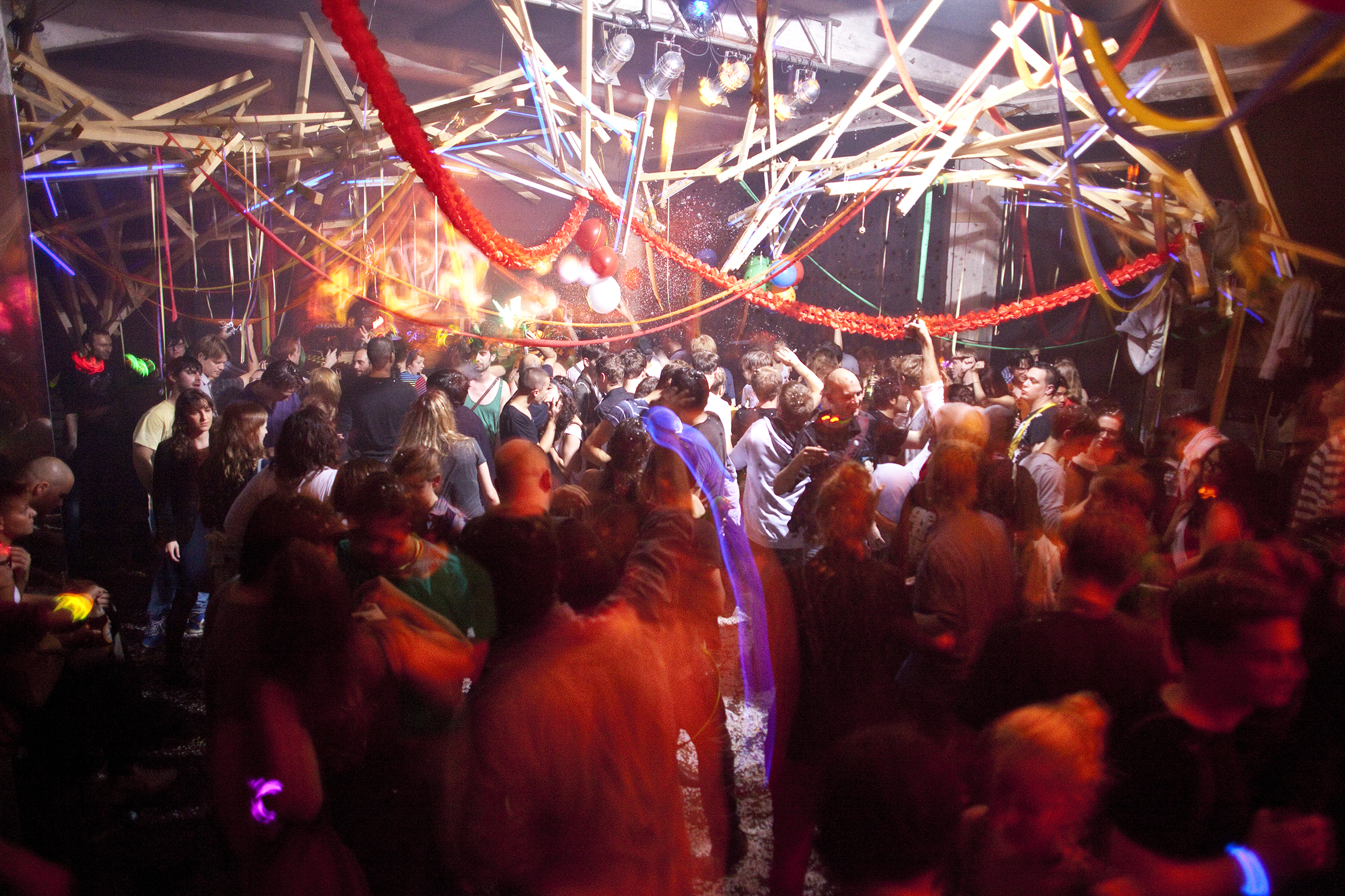
How did the pandemic impact on the project and how has the project adapted?
The ongoing Covid-19 pandemic has impacted many aspects of the CRP, from research strategies and access to archives and field sites to collaborative knowledge production and dissemination. Additionally, many of our Associated Partners and Researchers continued to have limited capacity for collaboration while engaged in local crisis response and care work. However, we were able to adapt to these challenges by modifying our research, work modes, and outreach strategies. Moreover, we implemented new initiatives, such as the collaborative Drug (Counter) Mapping book project and the recently released onternational collected volume in French, Les espaces genrés des drogues (The Gendered Spaces of Drugs), edited by PI Germes, and partners, with contributions from other project member, was released recently.
Other important project adaptations were two final conferences: “Ecologies of Fear” (2–4 September 2021), hybrid at KWI Essen, featuring lectures and participation by PIs and other researchers, and “Drugs in Party Spaces and Gender” (17 May 2021), an online event organized by our Bordeaux team.
These events, as well as the Narcotic City Archive and project publications aim to advance understanding of urban narcotic cultures and how drug use is governed in urban space. Especially in the context of the current pandemic crisis, which is significantly altering our relationship to public spaces, the themes of our project have proven to be highly relevant and timely.
• Interesting collaborations / partnerships:
To engage in knowledge co-production and to establish the participatory archive, we collaborate with many non-profit organizations across Europe. Some of these associations have been working in the fields of drug activism, policy debate, and living history for decades.
For example, we collaborate with Fixpunkt e.V. Berlin, an NGO offering impartial drug help and health promotion in Berlin since 30 years, for events and exchanges.
With the drug checking initiatives The Loop (London), Advisebureau Drugs (Amsterdam) and Kosmicare (Lisbon), we collaborate on exploring the histories and contemporary challenges of drug checking across Europe.
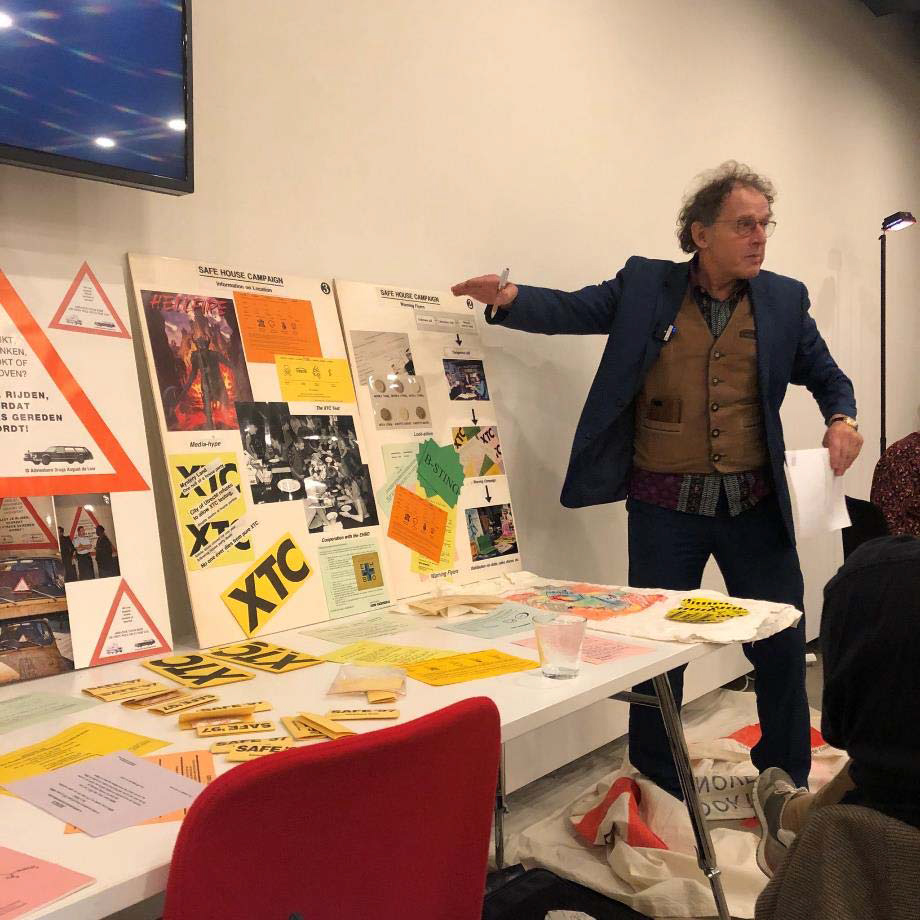
Recently, we have established collaboration with the Christiania Archive and its director Ole Lykke to digitalize historical posters on drug activism and more.
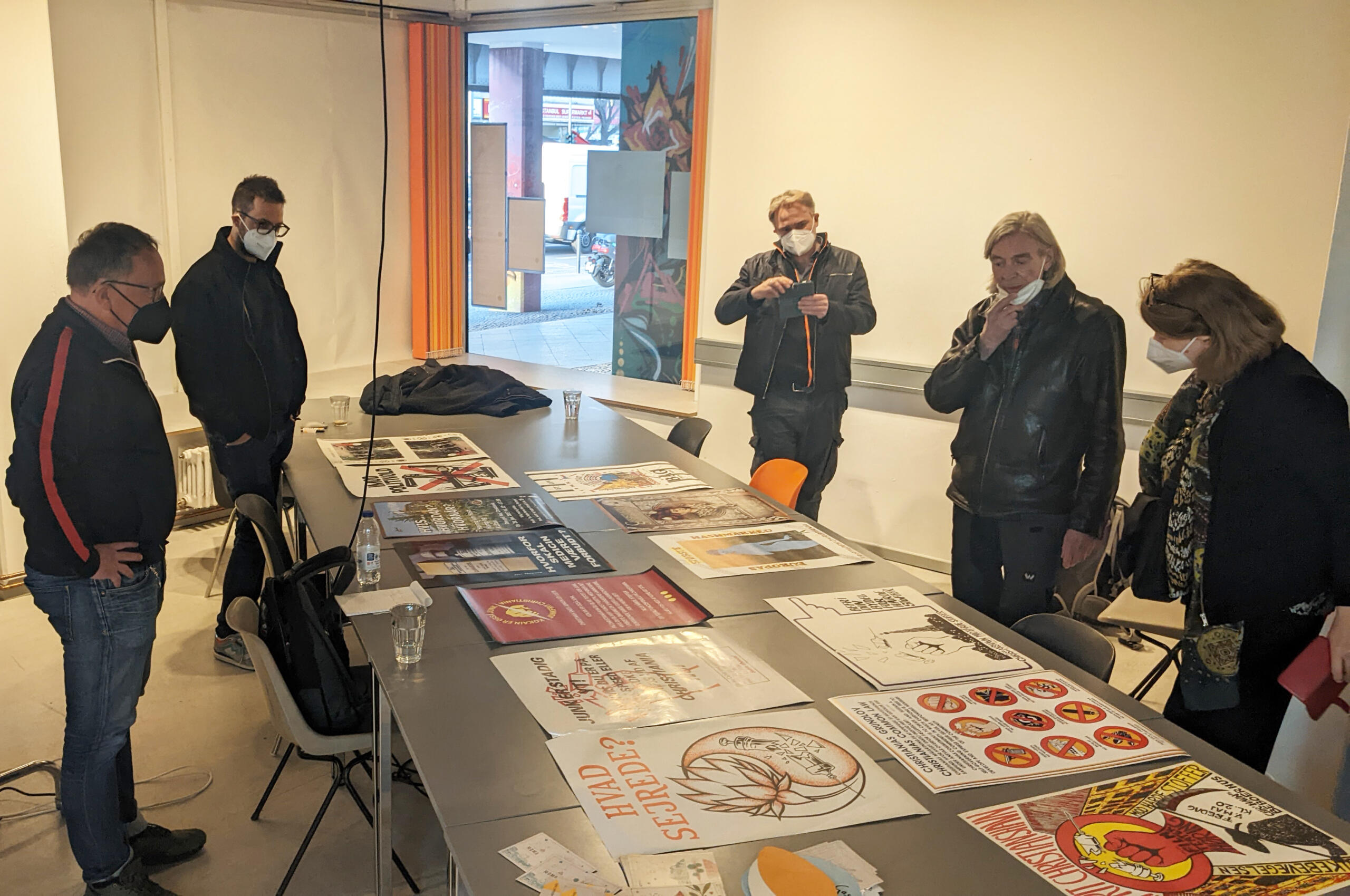
Project showcase
The Narcotic City Archive collects and preserves the heritage of substance use and many associated social, cultural, economic, and political issues. We invite you to explore and contribute to this free online archive on cultures, histories, activities, and spaces related to drugs: www.narcotic-archive.org
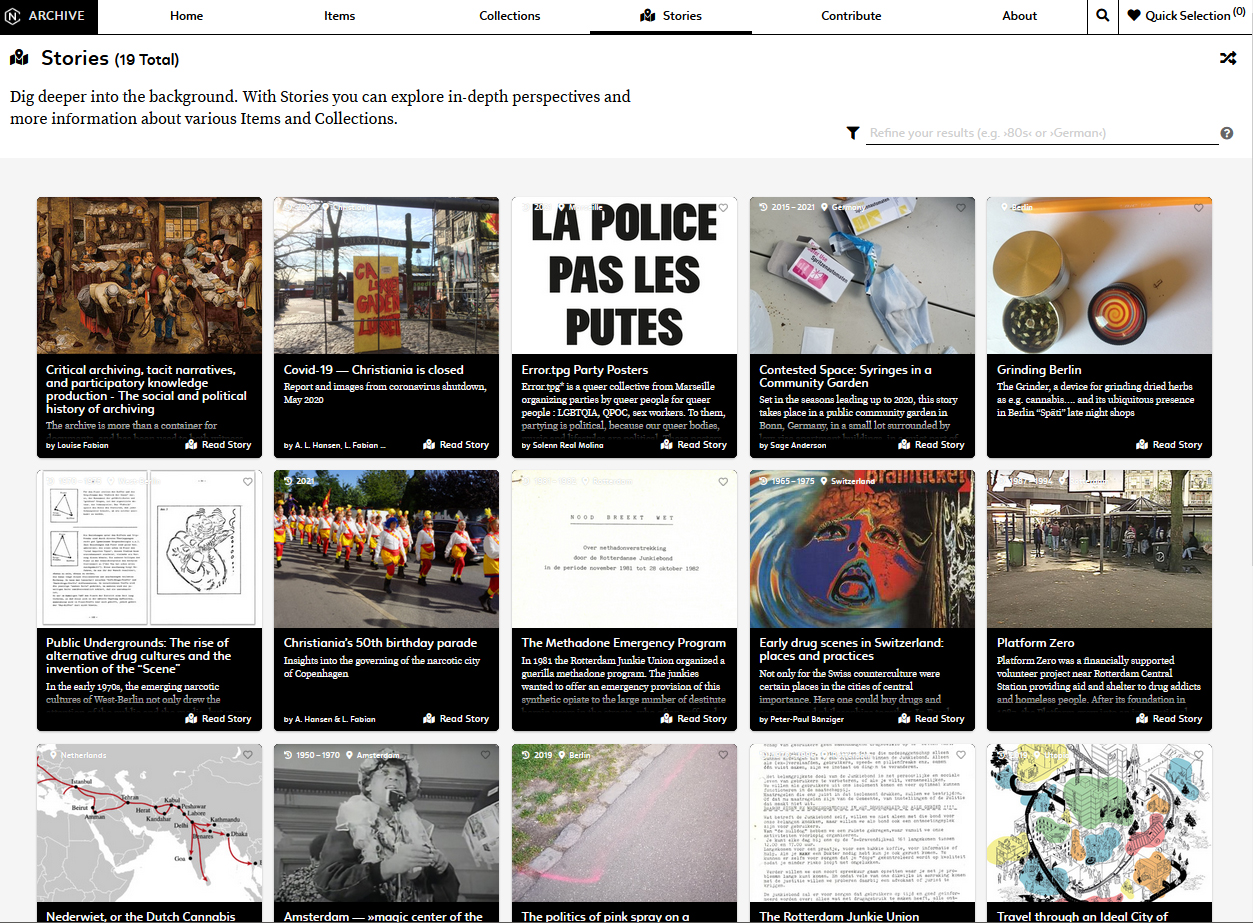
The Narcotic City Lockdown Report: Marginalization and Space in Times of COVID-19 explores how transformations of public space during the COVID-19 lockdown affect the conditions of particular groups of vulnerable and/or marginalized citizens. Download the report here (pdf, 87p.)
Narcotic City Lockdown Report: Marginalization and Space in Times of COVID-19
Highlighted Publication: M. Germes, J. Künkel, E. Langois, S. Perrin, R. Scavo: Espaces genrés des drogues – Parcours dans l’intimité, la fête et la réduction des risques. Le Board De L’Eau, Paris, 2022
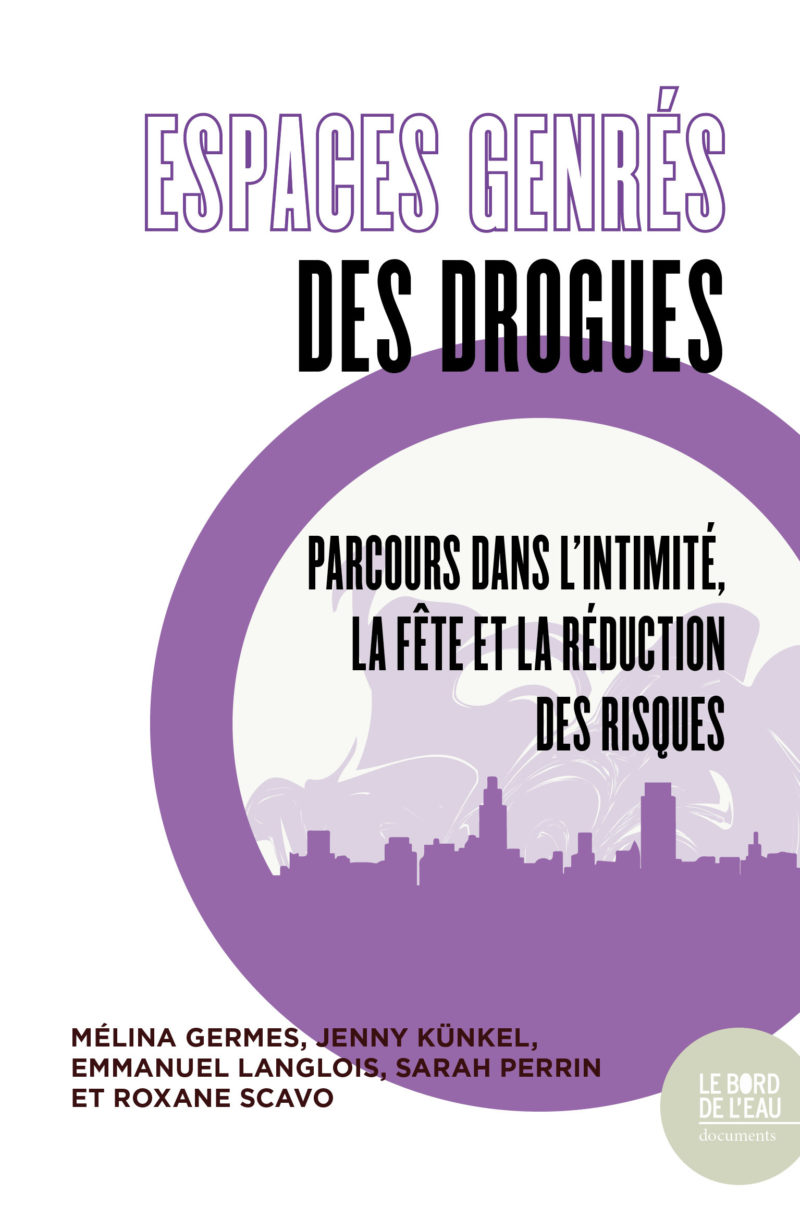
In one of our final conferences: Ecologies of Fear: Spatial Politics and Imaginaries of Crisis and Danger, held in September 2021 at KWI Essen, we explored what happens when we attribute anxiety to specific environments. More info and program here:
Ecologies of Fear: Spatial Politics and Imaginaries of Crisis and Danger
